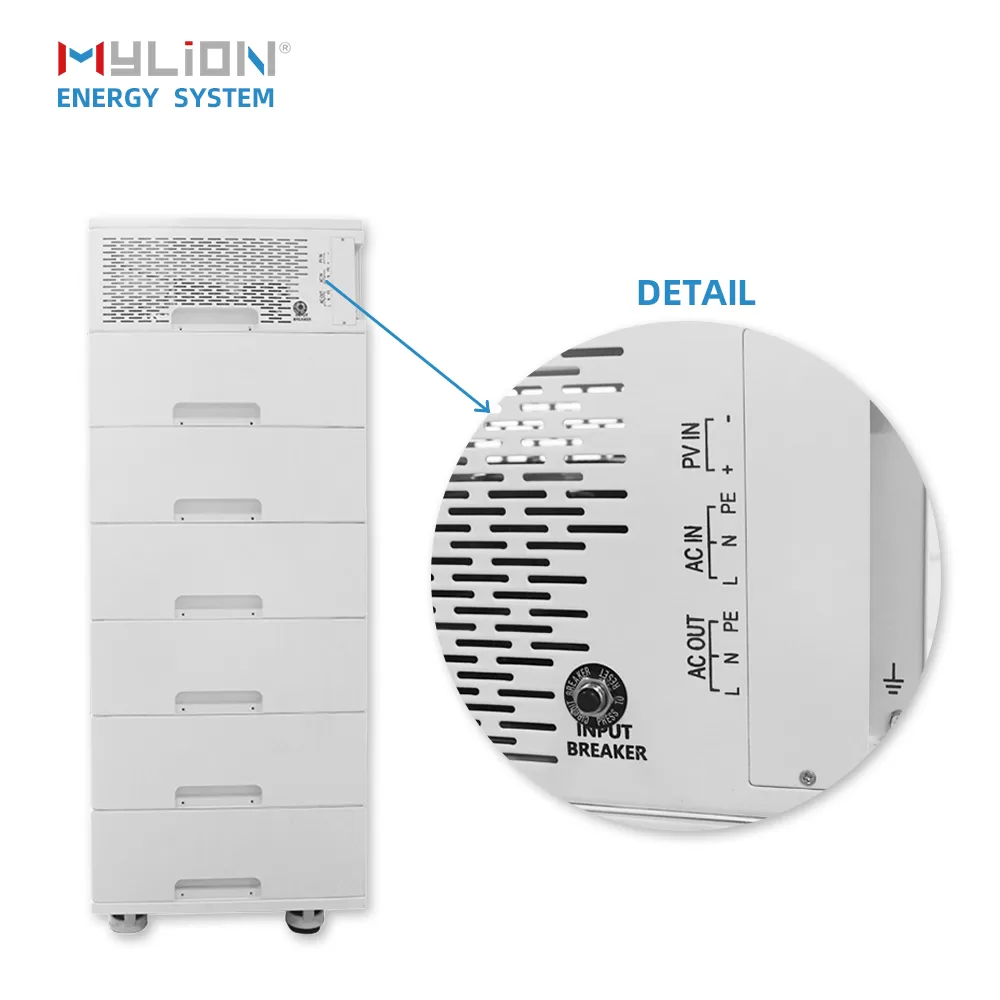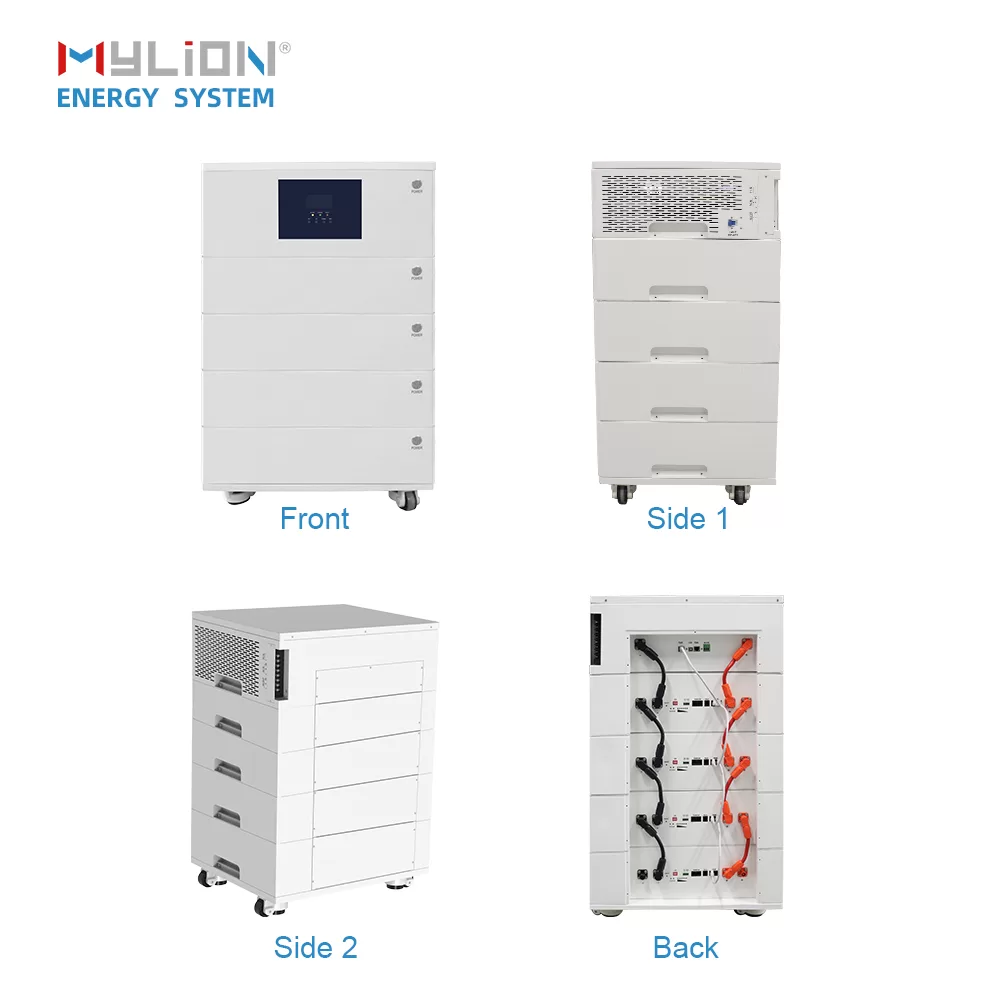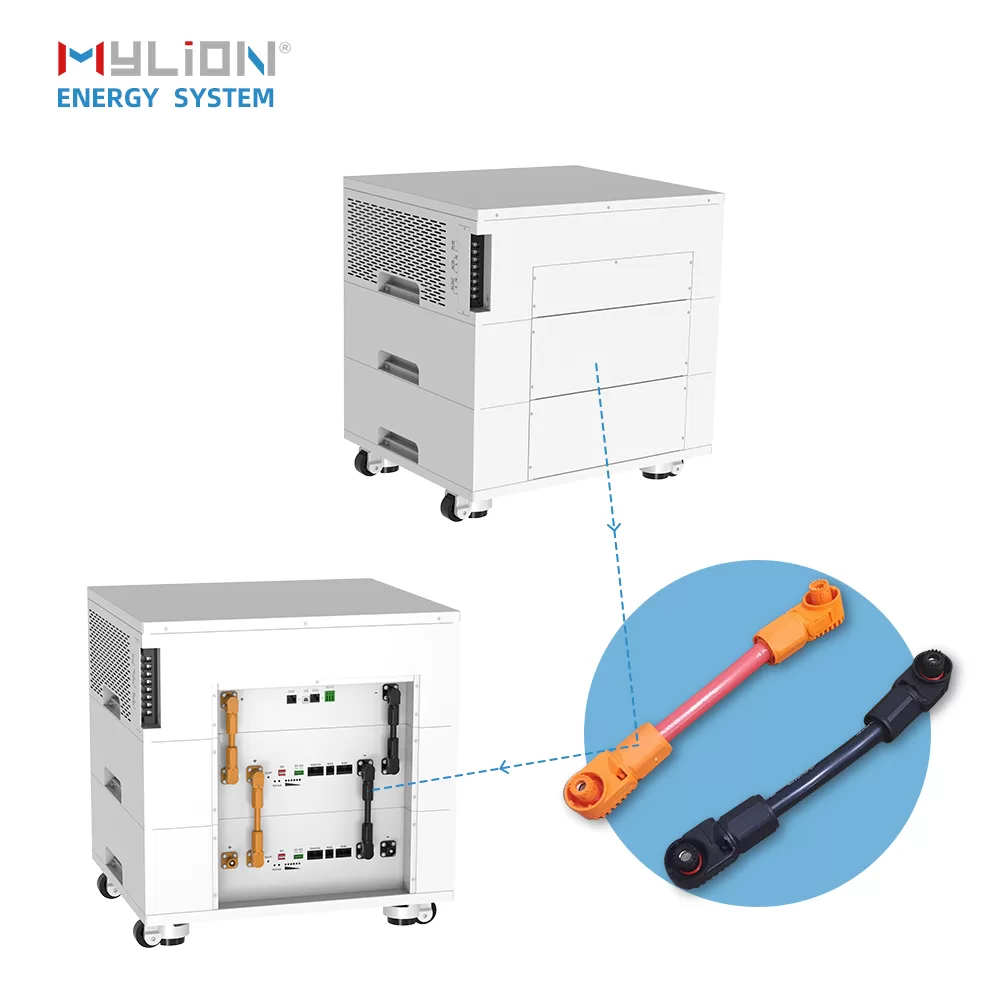Commercial battery storage is revolutionizing the way businesses manage their energy consumption and costs. With the ability to store excess energy generated by solar panels or other renewable sources, commercial battery storage offers numerous benefits for businesses of all sizes and industries.
Reduced Energy Costs: One of the primary benefits of commercial battery storage is the ability to reduce energy costs. By storing excess energy during periods of low demand or when renewable sources are producing more energy than needed, businesses can avoid purchasing electricity from the grid during peak demand times when prices are higher. This can result in significant savings on monthly utility bills.
Energy Independence: Commercial battery storage systems provide businesses with a level of energy independence. By storing energy on-site, businesses can rely less on the grid and have a reliable source of power even during power outages or disruptions. This can be particularly beneficial for critical operations that require uninterrupted power, such as hospitals, data centers, and emergency response facilities.
Environmental Sustainability: Utilizing commercial battery storage in conjunction with renewable energy sources like solar power allows businesses to reduce their carbon footprint and contribute to a more sustainable future. By storing and utilizing clean energy, businesses can decrease their reliance on fossil fuels and reduce greenhouse gas emissions.

Peak Shaving and Load Shifting: Commercial battery storage enables businesses to participate in peak shaving and load shifting strategies. Peak shaving involves using stored energy during times of high electricity demand, reducing the need to draw power from the grid and avoiding costly demand charges. Load shifting allows businesses to shift energy consumption to off-peak hours when electricity rates are lower, further optimizing energy costs.
Backup Power and Resilience: Commercial battery storage systems can provide backup power during power outages or grid disruptions. This ensures that critical operations can continue uninterrupted, minimizing downtime and potential financial losses. Having a reliable backup power source can be especially crucial for industries such as healthcare, manufacturing, and telecommunications.
Revenue Generation: In some regions, commercial battery storage systems can participate in demand response programs and provide grid services, allowing businesses to earn additional revenue. By providing grid stability and supporting the integration of renewable energy into the grid, businesses can contribute to the overall reliability and efficiency of the electricity system while generating income.
In conclusion, commercial battery storage offers a range of benefits for businesses, including reduced energy costs, energy independence, environmental sustainability, peak shaving and load shifting capabilities, backup power, and potential revenue generation. As businesses continue to prioritize sustainability and cost savings, commercial battery storage will play an increasingly important role in their energy management strategies.
How Does Commercial Solar Battery Storage Work?
Commercial solar battery storage is a game-changer in the world of renewable energy. It allows businesses to store excess solar energy and use it when needed, providing a reliable and cost-effective solution for managing energy consumption. But how exactly does commercial solar battery storage work?
At its core, commercial solar battery storage involves the use of rechargeable batteries to store energy generated by solar panels. These batteries are typically lithium-ion chemistry and are about the size of a refrigerator, depending on the power requirements of the business. Just like the batteries in our cell phones or electric cars, they can be charged up with solar energy and discharge that energy when needed.
The process starts with the installation of solar panels on the commercial property, which convert sunlight into electricity. During the day, when the sun is shining and the solar panels are producing more energy than the business needs, the excess energy is stored in the batteries instead of being fed back into the grid. This energy can then be used during periods of low solar production, such as at night or on cloudy days, reducing the reliance on grid electricity.
One of the main advantages of commercial solar battery storage is its ability to reduce demand charges. Commercial utility customers are billed not only for the total amount of energy they use but also for their peak demand during a billing cycle. By using stored energy during peak demand periods, businesses can lower their peak load and subsequently reduce demand charges, resulting in significant cost savings.
Additionally, commercial solar battery storage provides backup power in the event of a grid outage. With batteries in place, businesses can continue to operate and avoid costly disruptions. This is especially crucial for industries that require uninterrupted power, such as hospitals, data centers, and emergency response facilities.
To ensure optimal performance and longevity, regular maintenance and monitoring of the battery storage system are essential. This includes checking the battery health, managing the charging and discharging cycles, and addressing any potential issues promptly. Working with a reputable solar provider can help businesses maintain and optimize their commercial solar battery storage system.
In conclusion, commercial solar battery storage offers businesses a sustainable and cost-effective solution for managing their energy consumption. By storing excess solar energy and using it when needed, businesses can reduce their reliance on grid electricity, lower demand charges, and have backup power during outages. With proper maintenance and monitoring, commercial solar battery storage can provide long-term benefits for businesses across various industries.
Understanding the Financial Benefits of Battery Storage
Battery storage systems offer numerous financial benefits for businesses that are looking to reduce energy costs and increase savings. By combining battery storage with commercial solar panel systems, companies can take advantage of the following financial advantages:
Reduced Demand Charges: Commercial utility customers often face demand charges based on their highest energy usage within a billing cycle. These demand charges can make up a significant portion of a business’s monthly utility bill. However, battery storage systems can help reduce these charges by delivering stored power during peak demand periods, effectively “shaving” the peaks and lowering overall energy costs.
Offsetting Peak Demand: Battery storage systems can be charged with energy produced by solar panels during the day, when energy demand tends to be highest. This stored energy can then be discharged during times when solar power is not available, such as at night or on cloudy days, reducing the need to draw electricity from the grid and lowering energy costs.
Participation in Demand Response Programs: Many power providers offer demand response programs that incentivize businesses to reduce energy usage during peak demand periods. By utilizing battery storage systems, businesses can shift their energy consumption to off-peak hours and participate in these programs, earning financial rewards for reducing their energy demand.
Increased Energy Independence: Battery storage systems allow businesses to become more energy independent by reducing their reliance on grid electricity. With enough solar panels and storage capacity, businesses can generate and store their own electricity, reducing or even eliminating the need to purchase electricity from the grid. This can lead to significant long-term cost savings.
Revenue Generation: In addition to cost savings, battery storage systems can also generate revenue for businesses. By participating in programs like demand response or selling excess stored energy back to the grid, businesses can earn additional income and offset the initial investment cost of the storage system.
It’s important to note that the financial benefits of battery storage can vary depending on factors such as the size of the system, local utility rates, and available incentives or rebates. Businesses should work with solar providers to conduct a thorough analysis of their energy usage and potential savings before investing in a commercial battery storage system.
By leveraging the financial benefits of battery storage, businesses can not only reduce their energy costs but also increase their energy resilience, reduce their carbon footprint, and enhance their overall financial performance. As battery storage technology continues to advance, the financial advantages of these systems are expected to become even more significant, making them a smart investment for businesses looking to improve their bottom line.

Applications and Industries that Benefit from Commercial Battery Storage
Commercial battery storage solutions have gained significant popularity in various industries due to their ability to provide reliable and cost-effective energy storage. These solutions offer numerous benefits and can be applied in a wide range of applications, making them suitable for various industries. Let’s explore some of the key applications and industries that can benefit from commercial battery storage.
1. Educational Institutions
Educational institutions, such as schools and universities, can greatly benefit from commercial battery storage. These institutions often have large campuses with high energy demands. By integrating battery storage with their solar panel systems, educational institutions can store excess energy generated during the day and use it during peak demand periods or at night. This not only helps reduce electricity costs but also ensures uninterrupted power supply during emergencies or power outages.
2. Healthcare Facilities
Healthcare facilities, including hospitals and clinics, require a constant and reliable power supply to operate critical medical equipment and provide patient care. Commercial battery storage can serve as a backup power source during grid outages, ensuring uninterrupted power supply for essential medical services. It also helps healthcare facilities reduce their electricity costs by storing excess solar energy and using it during peak demand periods.
3. Hotels and Resorts
The hospitality industry, particularly hotels and resorts, can benefit from commercial battery storage to reduce their electricity costs and enhance their sustainability efforts. These establishments often have high energy demands, especially for heating, cooling, and other amenities. By integrating battery storage with their solar panel systems, hotels and resorts can store excess solar energy and use it during peak demand periods, reducing their reliance on the grid and lowering electricity expenses.
4. Manufacturing and Industrial Facilities
Manufacturing and industrial facilities typically have high energy demands, making them ideal candidates for commercial battery storage. These facilities often experience peak demand periods, which can result in high electricity costs due to demand charges. By using battery storage, manufacturing and industrial facilities can reduce their peak demand and offset demand charges, resulting in significant cost savings. Additionally, battery storage can provide backup power during grid outages, ensuring uninterrupted operations.
5. Commercial Offices
Commercial office buildings can benefit from commercial battery storage by reducing their electricity costs and increasing their energy independence. Battery storage allows these buildings to store excess solar energy and use it during peak demand periods, reducing their reliance on grid electricity and lowering energy expenses. It also provides backup power during outages, ensuring uninterrupted operations and productivity.
6. Retail Stores and Supermarkets
Retail stores and supermarkets can benefit from commercial battery storage by reducing their electricity costs and ensuring uninterrupted operations. These establishments often have high-energy demands, especially for refrigeration and lighting. By integrating battery storage with their solar panel systems, retail stores and supermarkets can store excess solar energy and use it during peak demand periods, reducing their reliance on the grid and lowering energy expenses. Additionally, battery storage can provide backup power during outages, preventing spoilage of perishable goods and ensuring customer satisfaction.
In conclusion, commercial battery storage offers numerous benefits and can be applied in various industries and applications. From educational institutions and healthcare facilities to hotels, manufacturing facilities, commercial offices, and retail stores, the potential for cost savings, energy independence, and uninterrupted operations is significant. By harnessing the power of commercial battery storage, businesses can reduce their electricity costs, increase their sustainability efforts, and ensure reliable power supply.
Factors to Consider in Commercial Solar Battery Storage
Commercial solar battery storage offers numerous benefits for businesses, including cost savings, energy independence, and environmental sustainability. However, before investing in a commercial solar battery storage system, there are several factors that businesses should consider to ensure they make the most informed decision.
Energy Consumption Patterns: Understanding your business’s energy consumption patterns is crucial in determining the size and capacity of the battery storage system you need. Analyzing your load profile, including peak demand periods and energy usage throughout the day, will help you determine the optimal storage capacity and discharge rate required to meet your energy needs.
Battery Technology: There are various battery technologies available for commercial solar battery storage, including lithium-ion and lead-acid batteries. Each technology has its own advantages and disadvantages in terms of performance, lifespan, and cost. It is essential to research and choose the battery technology that best suits your business’s specific requirements.
System Scalability: Consider the scalability of the battery storage system. As your business grows, your energy needs may increase, and you may require additional storage capacity. It is important to choose a system that can easily accommodate future expansion without significant disruptions or costly upgrades.
Integration with Existing Solar System: If your business already has a solar panel system in place, ensure that the battery storage system can seamlessly integrate with your existing infrastructure. Compatibility and proper integration are crucial to maximize the benefits of both solar energy and battery storage.
Cost and Return on Investment: Evaluate the upfront cost of the commercial solar battery storage system and compare it with the potential savings and return on investment. Consider factors such as available incentives, tax credits, and financing options that can help offset the initial investment and make the system more financially viable over time.
Maintenance and Warranty: Understand the maintenance requirements of the battery storage system and the warranty provided by the manufacturer. Regular maintenance and monitoring are essential to ensure optimal performance and longevity of the system. Additionally, consider the warranty coverage and support provided by the manufacturer to address any potential issues or malfunctions.
Regulatory and Utility Considerations: Research and understand the regulatory and utility policies regarding commercial solar battery storage in your area. Some regions may have specific regulations or incentives that can further enhance the financial benefits of implementing a battery storage system.
By carefully considering these factors, businesses can make informed decisions when it comes to commercial solar battery storage. A thorough analysis of energy consumption patterns, battery technology, scalability, integration, cost, maintenance, and regulatory considerations will help businesses choose the right system that aligns with their energy needs, financial goals, and sustainability objectives. With the right commercial solar battery storage system in place, businesses can enjoy the benefits of reduced energy costs, increased energy independence, and a smaller carbon footprint.
Maintenance and Upkeep of Commercial Battery Storage Systems
Ensuring the proper maintenance and upkeep of commercial battery storage systems is crucial for maximizing their performance and lifespan. Regular maintenance not only helps prevent potential issues but also allows for early detection and prompt resolution of any problems that may arise. Here are some key considerations for maintaining and upkeeping commercial battery storage systems:
Regular Inspections: Conduct routine inspections of the battery storage system to check for any signs of wear, damage, or malfunctions. This includes inspecting the physical components, such as the batteries, inverters, and wiring, as well as monitoring the system’s performance through data analysis.
Cleaning and Ventilation: Keep the battery storage system clean and free from any debris or dust that may accumulate over time. This helps prevent potential damage to the components and ensures optimal performance. Additionally, ensure proper ventilation to prevent overheating, as excessive heat can degrade battery performance and lifespan.
Battery Testing: Regularly test the batteries to assess their capacity and overall health. This can be done through various methods, such as measuring voltage levels, conducting load tests, or using specialized battery testing equipment. Battery testing helps identify any potential issues, such as degraded cells or reduced capacity, and allows for timely maintenance or replacement.
Software Updates and Monitoring: Stay up to date with the latest software updates for the battery storage system. These updates often include bug fixes, performance improvements, and enhanced safety features. Additionally, utilize monitoring systems to track the system’s performance and detect any abnormalities or inefficiencies. This real-time monitoring allows for proactive maintenance and ensures optimal system performance.
Safety Measures: Implement proper safety measures to protect the battery storage system and personnel. This includes following manufacturer guidelines for handling and storing batteries, ensuring proper grounding and electrical safety measures, and conducting regular safety inspections.
Emergency Preparedness: Develop and regularly review an emergency response plan for the battery storage system. This plan should include procedures for handling potential emergencies, such as power outages, system failures, or safety incidents. Regularly train personnel on these procedures to ensure a swift and effective response in case of emergencies.
Professional Maintenance Services: Consider engaging professional maintenance services to conduct regular inspections, testing, and maintenance of the battery storage system. These professionals have the expertise and experience to identify and address any potential issues, ensuring the system operates at its optimal level.
By following these maintenance and upkeep practices, commercial battery storage systems can operate efficiently, maximize their lifespan, and provide reliable energy storage for businesses. Regular maintenance not only ensures the system’s performance but also helps businesses avoid costly downtime and repairs. Investing in proper maintenance and upkeep is essential for reaping the full benefits of commercial battery storage systems.
The Future of Commercial Battery Storage: Trends and Innovations
As the demand for renewable energy continues to grow, the future of commercial battery storage looks promising. With advancements in technology and increasing awareness of the benefits of energy storage, there are several trends and innovations that are shaping the future of this industry.
Increased Efficiency and Capacity: One of the key trends in commercial battery storage is the continuous improvement in efficiency and capacity. As battery technology evolves, we can expect to see batteries with higher energy density and longer lifespans. This means that businesses will be able to store more energy and rely less on the grid, leading to increased cost savings and energy independence.
Integration with Renewable Energy Sources: Commercial battery storage systems are increasingly being integrated with renewable energy sources such as solar and wind. This allows businesses to store excess energy generated during peak production times and use it during periods of high demand or when renewable energy sources are not available. This integration not only maximizes the use of clean energy but also helps businesses reduce their reliance on fossil fuels.
Smart Energy Management Systems: The future of commercial battery storage lies in smart energy management systems. These systems use advanced algorithms and artificial intelligence to optimize energy usage, storage, and distribution. By analyzing data from various sources such as weather patterns, energy consumption patterns, and electricity prices, these systems can make intelligent decisions on when to charge, discharge, or store energy. This level of automation and optimization will help businesses further reduce their energy costs and improve their overall energy efficiency.
Grid Integration and Virtual Power Plants: Commercial battery storage systems are increasingly being connected to the grid, allowing businesses to participate in grid services such as frequency regulation and demand response. In addition, the concept of virtual power plants is gaining traction, where multiple commercial battery storage systems are aggregated and managed as a single entity. This allows for greater flexibility and scalability, as well as the ability to provide grid stability and support during peak demand periods.
Cost Reduction: As with any technology, the cost of commercial battery storage systems is expected to decrease over time. Advances in manufacturing processes, economies of scale, and increased competition in the market will drive down the cost of batteries. This will make commercial battery storage more accessible to businesses of all sizes and industries, further accelerating the adoption of this technology.
In conclusion, the future of commercial battery storage is bright. With increasing efficiency, integration with renewable energy sources, smart energy management systems, grid integration, and cost reduction, businesses can expect to see significant benefits in terms of cost savings, energy independence, and environmental sustainability. As the demand for clean energy continues to grow, commercial battery storage will play a crucial role in shaping the future of our energy landscape.
Conclusión
In conclusion, commercial battery storage is revolutionizing the way businesses manage their energy consumption and costs. It offers numerous benefits, including reduced energy costs, energy independence, environmental sustainability, peak shaving and load shifting capabilities, backup power, and potential revenue generation. As businesses continue to prioritize sustainability and cost savings, commercial battery storage will play an increasingly important role in their energy management strategies.
One of the primary benefits of commercial battery storage is the ability to reduce energy costs. By storing excess energy during periods of low demand or when renewable sources are producing more energy than needed, businesses can avoid purchasing electricity from the grid during peak demand times when prices are higher. This can result in significant savings on monthly utility bills.
Commercial battery storage also provides businesses with a level of energy independence. By storing energy on-site, businesses can rely less on the grid and have a reliable source of power even during power outages or disruptions. This is particularly beneficial for critical operations that require uninterrupted power, such as hospitals, data centers, and emergency response facilities.
Furthermore, utilizing commercial battery storage in conjunction with renewable energy sources allows businesses to reduce their carbon footprint and contribute to a more sustainable future. By storing and utilizing clean energy, businesses can decrease their reliance on fossil fuels and reduce greenhouse gas emissions.
Commercial battery storage enables businesses to participate in peak shaving and load shifting strategies. Peak shaving involves using stored energy during times of high electricity demand, reducing the need to draw power from the grid and avoiding costly demand charges. Load shifting allows businesses to shift energy consumption to off-peak hours when electricity rates are lower, further optimizing energy costs.
Moreover, commercial battery storage systems can provide backup power during power outages or grid disruptions. This ensures that critical operations can continue uninterrupted, minimizing downtime and potential financial losses. Having a reliable backup power source is especially crucial for industries such as healthcare, manufacturing, and telecommunications.
In some regions, commercial battery storage systems can participate in demand response programs and provide grid services, allowing businesses to earn additional revenue. By providing grid stability and supporting the integration of renewable energy into the grid, businesses can contribute to the overall reliability and efficiency of the electricity system while generating income.
As businesses look to reduce energy costs, increase energy resilience, and contribute to a more sustainable future, commercial battery storage will continue to be a smart investment. With advancements in technology, increasing efficiency, integration with renewable energy sources, smart energy management systems, grid integration, and cost reduction, the future of commercial battery storage is promising. By harnessing the power of commercial battery storage, businesses can enjoy the benefits of reduced energy costs, increased energy independence, and a smaller carbon footprint.
In conclusion, commercial battery storage offers a range of benefits for businesses across various industries. By leveraging the financial advantages of battery storage, businesses can not only reduce their energy costs but also increase their energy resilience, reduce their carbon footprint, and enhance their overall financial performance. As battery storage technology continues to advance, the financial benefits of these systems are expected to become even more significant, making them a smart investment for businesses looking to improve their bottom line.
Overall, commercial battery storage is transforming the way businesses manage their energy needs. With its ability to reduce costs, provide backup power, and contribute to sustainability efforts, it is becoming an essential component of energy management strategies. As businesses continue to prioritize efficiency, resilience, and environmental responsibility, commercial battery storage will play a crucial role in shaping the future of our energy landscape.






